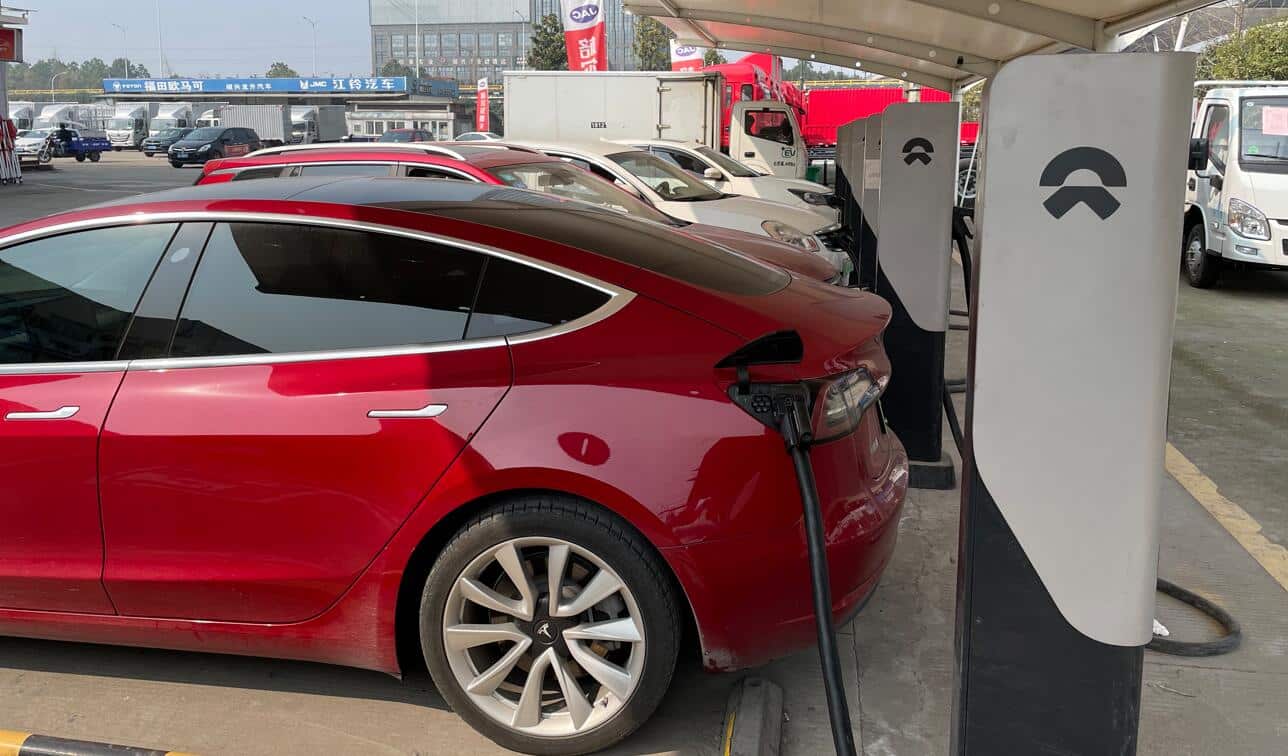Automakers can voluntarily apply for storage of positive credits when the supply exceeds demand, and release credits when the supply is less than demand.

(Image credit: CnEVPost)
China will introduce a new credits trading system for the dual-credit mechanism in the new energy vehicle (NEV) industry, which is expected to facilitate credits trading between automakers.
The country has launched the second revision of its dual-credit mechanism, which will implement a credits pool management system and explore mechanisms to interact with the carbon trading market, the Shanghai Securities News said in a report today.
The 2023 annual credits report press conference was held today in Beijing, where China's industry regulators released the information, according to the report.
Under the credit pool system, automakers can voluntarily apply for storage of positive credits for NEVs when the supply exceeds demand.
The storage of positive credits collected into the pool is valid for five years. The previous carryover ratio requirement will be canceled, i.e. there will no longer be a discount for credits carried over to the next year.
When the supply of credits is less than the demand, automakers can release the stored positive credits to regulate the supply and demand in the credits market.
The trigger condition for the pool to collect and release credits is determined by the ratio of supply to demand, which refers to the ratio of positive NEV credits available for trading in the current year to the negative credits to be offset by external trading.
The Shanghai Securities News report provided no further information on this new mechanism.
China released the dual-credit policy in 2017, whose full name is "Parallel Management Measures for Average Fuel Consumption of Passenger Vehicle Enterprises and New Energy Vehicle Credits". The policy has been in effect since April 1, 2018.
Automakers that fail to meet the fuel consumption control requirements can offset the negative credits from excessive fuel consumption by generating their own NEV credits, or by purchasing credits from other companies.
If a car company is unable to bring negative credits to zero, then they will need to submit a product adjustment plan to the MIIT and set a deadline for compliance.
Until their negative credits are zeroed out, products with substandard fuel consumption cannot be sold to the public.
The policy is seen as one of the keys to promoting the rapid growth of China's NEV industry, allowing the country to reach its 2025 NEV penetration target of more than 25 percent ahead of schedule.
For the full year 2022, China's retail sales of new energy passenger vehicles were 5.67 million units, up 90 percent year-on-year, contributing 27.6 percent of all passenger vehicle sales, according to the China Passenger Car Association (CPCA).
